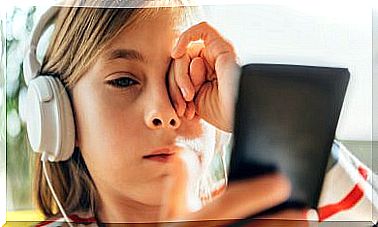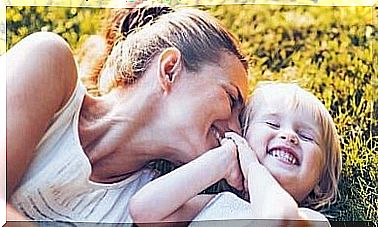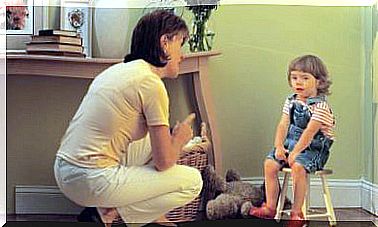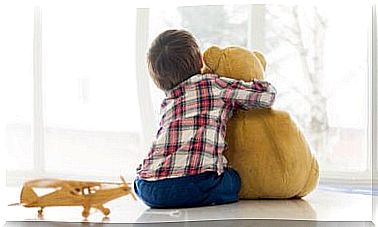How Beauty Canons Influence Adolescents
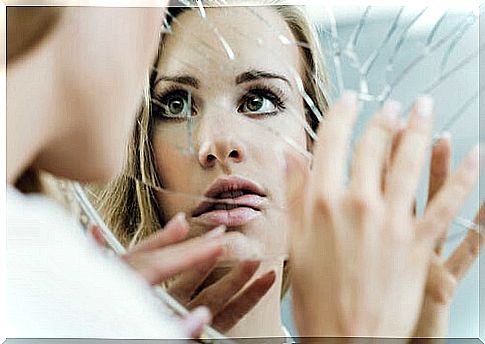
Concern for physical appearance is a constantly growing trend. We are increasingly concerned about how we see ourselves and this is particularly accentuated in young people. The canons of beauty in adolescents can greatly condition their habits, behaviors and relationships with others.
There is nothing wrong with taking care of our appearance and trying to look good, especially if it makes us feel happy, full and satisfied with ourselves.
However, there is a fine line between this preference and trying too hard to meet the demands of fashion or other people. In no way the way of dressing, height or weight can become a reason for negative or positive discrimination.
We will review, below, how influential are the canons of beauty in adolescents and in what way they alter their lives.

What do we understand by “canon of beauty”?
The word “canon” comes from the Greek word kanon , which meant “rule or measuring rod.” The canons of beauty represent what a community interprets as “aesthetically pleasing” or what conforms to the parameters established for a certain set of people or things.
One quality of canons of beauty is that they depend heavily on the space and time in which they are built. To illustrate, we can point out that what is considered “beautiful” today is not the same as four hundred years ago. In the same way, contemporary Asian culture does not have the same parameters as North American, despite the fact that they coexist temporarily.
Applied to the human body, the canons of beauty refer to the approach to the idea of the “perfect body”. Skin color, eye color, height, weight, physical build, and prominence of the attributes of each gender are judged.
What can cause the obsession with beauty canons in teenagers?
There are very important risks related to beauty standards in adolescents. Many times, the intention to fit in and to be accepted and recognized in a certain social group becomes a very strong pressure.
In addition, the worrying thing is that it is a trend that is growing. A recent study by Dove indicates that 36% of women between 11 and 20 years old already feel complexes towards their body and that they are ashamed of some areas.
In today’s consumer society, cosmetics, clothing and other product companies contribute to the formation of this “need” to conform to a stereotype, even from a very young age. Social networks also contribute their bit.
What can this excessive worry lead to? We cite some examples:
- Eating Disorders: Weight is a central issue in the concerns of adolescents today. If you want to lose weight to improve your figure, the ideal is to eat a healthy and balanced diet prepared by a professional. Otherwise, a nutritional deficit could occur that can lead to more severe disorders.
- Loss of self-esteem: not feeling satisfied with one’s own body generates mistrust and rejection. It is important to work on this problem from a psychological point of view to prevent the adolescent from falling into a depression just for not “complying” with the established beauty models.
- Pretending to be someone you are not: it is common to see adolescents adopting behaviors, tastes and ways of dressing or speaking to impress or like a certain group of people. It is a big mistake. One of the bases of happiness is learning to love yourself as you are. To do this, you have to avoid comparisons and stereotypes.

How to advise a teenager who is concerned about his appearance?
One of the characteristics of this effort to be considered “beautiful” is that, in general, it is not externalized. Teenagers don’t walk down the street screaming that they want to lose weight and can’t or that they hate the places they go to follow their friends.
The parent’s eye must be hungry to notice these situations. If you see that your child behaves strangely, skips meals, does not rest well or abandons his normal activities to change them for other unusual ones, you better talk with him and ask what is wrong with him.
Remind him that the true beauty of an individual lies in his personality. The exterior is only the packaging, the value of people resides in what they cause in others and in what they have to offer from the human quality. The canons of beauty in adolescents are only subjective constructions that do not add up and that, sooner or later, will disappear.

